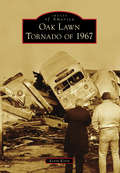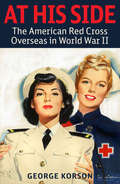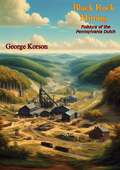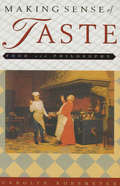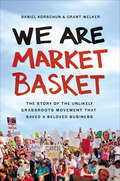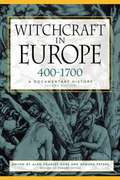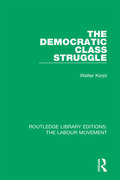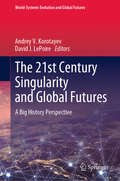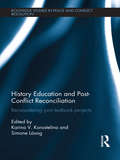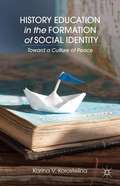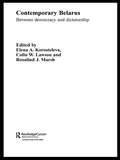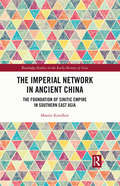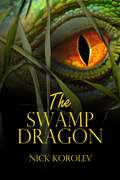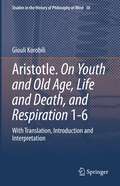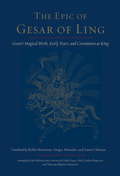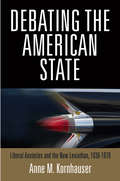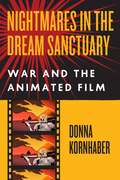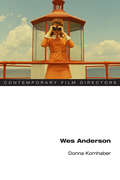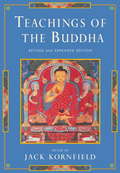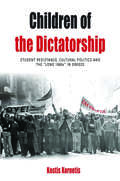- Table View
- List View
Oak Lawn Tornado of 1967
by Kevin KorstThe morning of April 21, 1967, was crisp and clear, marking the arrival of spring. As the day progressed, dark clouds covered the skies over Oak Lawn, and a deadly tornado touched down in the village just before 5:30 p.m. Cutting through the intersection of 95th Street and Southwest Highway and striking elsewhere, the storm left mountains of debris and over 30 people dead in its wake. Oak Lawn Community High School, St. Gerald Catholic Church, and the Fairway Super Mart were among the structures damaged or destroyed by the high winds. After the disaster, rescue workers and volunteers poured into Oak Lawn to search for survivors, while Christ Community Hospital and other institutions treated more than 400 injured people. The immense cleanup, which took weeks to complete, saw debris hauled out or disposed of in controlled fires. Despite the scope of the devastation, many of the affected structures were repaired or rebuilt within 12 months.
At His Side: The Story of the American Red Cross Overseas in World War II
by George Gershon KorsonAt His Side, first published in 1945, is the authoritative work on the many important overseas activities of the American Red Cross during the Second World War. From field hospitals, nursing, blood collection, entertainment, to simply providing coffee and fresh doughnuts to exhausted troops, the dedicated workers of the Red Cross were there to save lives and boost morale. The book includes personal accounts of many Red Cross workers involved in all aspects of the Red Cross' overseas wartime efforts, and from all regions of the globe—reports from India, China, North Africa, Guadalcanal, the Philippines, Europe, Australia, Iceland, and more, are presented in a highly readable fashion. Included are 17 maps of the various theaters where the Red Cross operated.
Black Rock Mining: Folklore of the Pennsylvania Dutch
by George KorsonDiscover the rich cultural heritage and vibrant folklore of the Pennsylvania Dutch miners with George Korson's Black Rock: Mining Folklore of the Pennsylvania Dutch. This captivating book offers an in-depth look into the lives, traditions, and stories of the Pennsylvania Dutch communities that thrived in the coal mining regions of Pennsylvania.Korson, a renowned folklorist and historian, delves into the unique blend of cultural influences that shaped the folklore of these hardworking communities. Through a collection of tales, songs, and personal anecdotes, Black Rock paints a vivid picture of the miners' daily lives, their beliefs, and their enduring spirit in the face of danger and hardship.The book explores a variety of themes, from supernatural legends and ghost stories to humorous anecdotes and practical jokes. Korson's meticulous research and engaging storytelling bring to life the rich oral traditions that were passed down through generations, offering readers a window into the communal values and resilience of the Pennsylvania Dutch miners.Black Rock is more than just a collection of folklore; it is a celebration of the human spirit and the cultural tapestry that defined the mining communities. Korson's work provides valuable insights into the social and economic conditions of the time, highlighting the role of folklore in providing solace, entertainment, and a sense of identity.This book is an essential read for anyone interested in folklore, cultural history, or the mining heritage of Pennsylvania. Whether you are a scholar, a history enthusiast, or simply curious about the traditions of the Pennsylvania Dutch, Black Rock: Mining Folklore of the Pennsylvania Dutch offers a fascinating and enriching experience.Join George Korson on a journey through the coal mines of Pennsylvania and immerse yourself in the captivating folklore of a resilient and storied community.
Making Sense of Taste: Food and Philosophy
by Carolyn KorsmeyerTaste, perhaps the most intimate of the five senses, has traditionally been considered beneath the concern of philosophy, too bound to the body, too personal and idiosyncratic. Yet, in addition to providing physical pleasure, eating and drinking bear symbolic and aesthetic value in human experience, and they continually inspire writers and artists.In Making Sense of Taste, Carolyn Korsmeyer explains how taste came to occupy so low a place in the hierarchy of senses and why it is deserving of greater philosophical respect and attention. Korsmeyer begins with the Greek thinkers who classified taste as an inferior, bodily sense; she then traces the parallels between notions of aesthetic and gustatory taste that were explored in the formation of modern aesthetic theories. She presents scientific views of how taste actually works and identifies multiple components of taste experiences.Turning to taste's objects—food and drink—she looks at the different meanings they convey in art and literature as well as in ordinary human life and proposes an approach to the aesthetic value of taste that recognizes the representational and expressive roles of food. Korsmeyer's consideration of art encompasses works that employ food in contexts sacred and profane, that seek to whet the appetite and to keep it at bay; her selection of literary vignettes ranges from narratives of macabre devouring to stories of communities forged by shared eating.
We Are Market Basket: The Story of the Unlikely Grassroots Movement That Saved a Beloved Business
by Daniel KorschunWhat if a company were so treasured and trusted that people literally took to the streets—by the thousands—to save it? That company is Market Basket, a popular New England supermarket chain. After long-time CEO Arthur T. Demoulas was ousted by his cousin Arthur S. Demoulas, the company's managers and rank-and-file workers struck back. Risking their own livelihoods to restore the job of their beloved boss they walked out, but they didn't walk far. At huge protest rallies, they were joined by loyal customers—leaving stores empty. Suppliers and vendors stopped deliveries—rendering shelves bare. Politicians were forced to take sides. The national media and experts were stunned by the unprecedented defense of an executive. All openly challenged the Market Basket board of directors to make things right. And, in the end, they prevailed. With its arresting firsthand accounts from the streets and executive suites, We Are Market Basket is as inspiring as it is instructive. What is it about Market Basket and its leader that provokes such ferocious loyalty? How does a company spread across three states maintain a culture that embraces everyone—from cashier to customer—as family? Can a company really become an industry leader by prioritizing stakeholders over shareholders? Set against a backdrop of bad blood and corporate greed, We Are Market Basket is, above all, a page-turner that chronicles the epic rise, fall, and redemption of this iconic and uniquely American company.
Naturalism and Unbelief in France, 1650–1729
by Kors Alan CharlesAtheism was the most fundamental challenge to early-modern French certainties. Leading educators, theologians and philosophers labelled such atheism as manifestly absurd, confident that neither the fact nor behaviour of nature was explicable without reference to God. The alternative was a categorical naturalism. This book demonstrates that the Christian learned world had always contained the naturalistic 'atheist' as an interlocutor and a polemical foil, and its early-modern engagement and use of the hypothetical atheist were major parts of its intellectual life. In the considerations and polemics of an increasingly fractious orthodox culture, the early-modern French learned world gave real voice and eventually life to that atheistic presence. Without understanding the actual context and convergence of the inheritance, scholarship, fierce disputes, and polemical modes of orthodox culture, the early-modern generation and dissemination of absolute naturalism are inexplicable. This book brings to life that Christian learned culture, its dilemmas, and its unintended consequences.
Witchcraft in Europe, 400-1700: A Documentary History
by Alan Charles Kors Edward PetersSelected by Choice magazine as an Outstanding Academic Book for 2001 The highly-acclaimed first edition of this book chronicled the rise and fall of witchcraft in Europe between the twelfth and the end of the seventeenth centuries. Now greatly expanded, the classic anthology of contemporary texts reexamines the phenomenon of witchcraft, taking into account the remarkable scholarship since the book's publication almost thirty years ago. Spanning the period from 400 to 1700, the second edition of Witchcraft in Europe assembles nearly twice as many primary documents as the first, many newly translated, along with new illustrations that trace the development of witch-beliefs from late Mediterranean antiquity through the Enlightenment. Trial records, inquisitors' reports, eyewitness statements, and witches' confessions, along with striking contemporary illustrations depicting the career of the Devil and his works, testify to the hundreds of years of terror that enslaved an entire continent. Thomas Aquinas, Martin Luther, Thomas Hobbes, and other thinkers are quoted at length in order to determine the intellectual, perceptual, and legal processes by which "folklore" was transformed into systematic demonology and persecution. Together with explanatory notes, introductory essays--which have been revised to reflect current research--and a new bibliography, the documents gathered in Witchcraft in Europe vividly illumine the dark side of the European mind.
Epicureans and Atheists in France, 1650–1729
by Alan Charles KorsAtheism was the most foundational challenge to early-modern French certainties. Theologians and philosophers labelled such atheism as absurd, confident that neither the fact nor behaviour of nature was explicable without reference to God. The alternative was a categorical naturalism, whose most extreme form was Epicureanism. The dynamics of the Christian learned world, however, which this book explains, allowed the wide dissemination of the Epicurean argument. By the end of the seventeenth century, atheism achieved real voice and life. This book examines the Epicurean inheritance and explains what constituted actual atheistic thinking in early-modern France, distinguishing such categorical unbelief from other challenges to orthodox beliefs. Without understanding the actual context and convergence of the inheritance, scholarship, protocols, and polemical modes of orthodox culture, the early-modern generation and dissemination of atheism are inexplicable. This book brings to life both early-modern French Christian learned culture and the atheists who emerged from its intellectual vitality.
The Democratic Class Struggle (Routledge Library Editions: The Labour Movement #22)
by Walter KorpiFirst published in 1983. This book combines a case study of class relations, politics and voting in Sweden with a comparative analysis of distributive conflicts and politics in eighteen OECD countries. Its underlying theoretical theme is the development of class relations in free-enterprise or capitalise democracies. This title will be of interest to students of history and politics.
The 21st Century Singularity and Global Futures: A Big History Perspective (World-Systems Evolution and Global Futures)
by Andrey V. Korotayev David J. LePoireThis book introduces a 'Big History' perspective to understand the acceleration of social, technological and economic trends towards a near-term singularity, marking a radical turning point in the evolution of our planet. It traces the emergence of accelerating innovation rates through global history and highlights major historical transformations throughout the evolution of life, humans, and civilization. The authors pursue an interdisciplinary approach, also drawing on concepts from physics and evolutionary biology, to offer potential models of the underlying mechanisms driving this acceleration, along with potential clues on how it might progress. The contributions gathered here are divided into five parts, the first of which studies historical mega-trends in relation to a variety of aspects including technology, population, energy, and information. The second part is dedicated to a variety of models that can help understand the potential mechanisms, and support extrapolation. In turn, the third part explores various potential future scenarios, along with the paths and decisions that are required. The fourth part presents philosophical perspectives on the potential deeper meaning and implications of the trend towards singularity, while the fifth and last part discusses the implications of the Search for Extraterrestrial Intelligence (SETI). Given its scope, the book will appeal to scholars from various disciplines interested in historical trends, technological change and evolutionary processes.
History Education and Post-Conflict Reconciliation: Reconsidering Joint Textbook Projects (Routledge Studies in Peace and Conflict Resolution)
by Karina V. Korostelina Simone LässigThis book analyses the role of history education in conflict and post-conflict societies, describing common history textbook projects in Europe, the Balkans, the Caucasus, the Far East and the Middle East. Ever since the emergence of the modern school system and the implementation of compulsory education, textbooks have been seen as privileged media. The knowledge they convey is relatively persistent and moreover highly selective: every textbook author must choose and omit, condense, structure, reduce, and generalize information. Within this context, history textbooks are often at the centre of interest. There are unquestionably significant differences regarding homogeneity or plurality of interpretations when concepts of history education are compared internationally. This volume conducts a comparative analysis of common history projects in different countries and provides conceptual frameworks and methodological tools for enhancing the roles of these projects in the processes of conflict prevention and resolution. This book is timely, as issues of history education in conflict and post-conflict societies are becoming more popular with the increased realisation that unresolved disagreements about historical narratives can, and often do, lead to renewed conflict or even violence. This book will be of interest to students of peace studies and conflict resolution, political science, history, sociology, anthropology, social psychology, and international relations in general.
History Education In The Formation Of Social Identity
by Karina V. KorostelinaIn order to determine how history education can be harnessed to reduce conflict attitudes and intentions and create a culture of peace, this book examines how history curricula and textbooks shape the identities of their students through their portrayals of ingroup and outgroup identity, intergroup boundaries, and value systems.
Contemporary Belarus: Between Democracy and Dictatorship
by Elena A. Korosteleva Colin W. Lawson Rosalind J. MarshBelarus is unique among the states of the former Soviet bloc, in that after a decade of transition', the country remains stalled' and backward-oriented. Political and economic changes are characterised by half-measures, and recently a new suppression of dissent has been introduced; the country balances between the prospect of democracy and a retreat to authoritarianism. These developments contrast starkly with the many democratic changes in neighbouring states and suggest a possible alternative path for future development in Eastern Europe. This book provides a thorough overview of current developments in Belarus. It looks at historical, political, economic and social changes, and at international relations, especially relations with Russia and the European Union, considering all these factors both in their domestic and international contexts and defines the type of democracy, if any, which exists in Belarus, exploring the prospects for further democratisation.
The Imperial Network in Ancient China: The Foundation of Sinitic Empire in Southern East Asia (Routledge Studies in the Early History of Asia)
by Maxim KorolkovThis book examines the emergence of imperial state in East Asia during the period ca. 400 BCE–200 CE as a network-based process, showing how the geography of early interregional contacts south of the Yangzi River informed the directions of Sinitic state expansion. Drawing from an extensive collection of sources including transmitted textual records, archaeological evidence, excavated legal manuscripts, and archival documents from Liye, this book demonstrates the breadth of human and material resources available to the empire builders of an early imperial network throughout southern East Asia – from institutions and infrastructures, to the relationships that facilitated circulation. This network is shown to have been essential to the consolidation of Sinitic imperial rule in the sub-tropical zone south of the Yangzi against formidable environmental, epidemiological, and logistical odds. This is also the first study to explore how the interplay between an imperial network and alternative frameworks of long-distance interaction in ancient East Asia shaped the political-economic trajectory of the Sinitic world and its involvement in Eurasian globalization. Contributing to debates around imperial state formation, the applicability of world-system models and the comparative study of empires, The Imperial Network in Ancient China will be of significant interest to students and scholars of East Asian studies, archaeology and history.
The Swamp Dragon
by Nick KorolevFrom the misty mountains and shadowy hollows of West Virginia a new legend arises. It's 1863 in Civil War-torn southern Hardy County. Beloved school teacher George Voorhees becomes the unlikely hero shortly after he joins the local Union Militia know as the Swamp Dragons, at his brother's insistence. When he's mortally wounded in an ambush by Luther Boggs, a vicious leader of a gang of Confederate bushwackers, Abigail, his friend, local midwife and witch turns him into a real swamp dragon in order to save his life. Overnight his simple life is shattered, and he's thrust into a perilous new world of destiny, magic and power. With only Abigail's advice for guidance and the continued support of Sarah, the girl he loves, George must navigate the dangerous terrain of a suddenly unfamiliar world in a quest to end the reign of terror by a man whose evil knows no bounds.
Aristotle. On Youth and Old Age, Life and Death, and Respiration 1-6: With Translation, Introduction and Interpretation (Studies in the History of Philosophy of Mind #30)
by Giouli KorobiliThis book is devoted to the last part of Aristotle’s collection of short treatises known today as the Parva Naturalia, i.e. the treatise On Youth and Old Age, on Life and Death, on Respiration. In the three main sections of the book, the author offers a translation, a commentary and a thorough analysis of this work. The author argues in favour of the unity of the work and contextualises its ideas within Aristotle’s corpus and the medical tradition of his time. After an Introduction to the nature of the work and its significance for the history of natural philosophy and science, a new English translation follows, along with a detailed commentary of Chapters 1-6, which combines philosophical discussion with philological observations. The book includes four interpretive essays, which tackle problems related to the whole treatise on a more philosophical basis, including questions about the structure and unity of the work, the organisation of the material, Aristotle’s methodological principles, his aims and target audience as well as the relevance of his selected themes to the thematic agenda of some Hippocratic writings. This book is of interest to students and researchers in Aristotle’s psychophysiology, and his views about the embodied mind, as well as to anyone concerned with the history of natural philosophy and science more generally.
The Epic of Gesar of Ling: Gesar's Magical Birth, Early Years, and Coronation as King
by Robin Kornman Sakyong Mipham Sangye Khandro Alak Zenkar Rinpoche Lama ChonamThe epic of Gesar has been the national treasure of Tibet for almost a thousand years. An open canon of tales about a superhuman warrior-king, the epic is still a living oral tradition, included on UNESCO's Representative List of the Intangible Cultural Heritage of Humanity. This book is a translation of the beginning portion of this enormous corpus, covering all the events from Gesar's divine conception to his human birth and mischievous childhood to his coronation as king of Ling.Born in the pure lands the son of two wisdom deities, Gesar takes rebirth in the human realm in order to defeat the demon kings who had taken over the empires of Asia and to thus liberate the people from suffering. His jealous uncle Trothung proves to be the first major threat to this goal, but Gesar outwits him every time using magic. In the last chapters of the book, he and Trothung's son face off in a high-tension horse race to decide who will win the throne of Ling and the hand of the coveted Princess Drugmo in marriage.Gesar's story is popularly read as an allegory, with Gesar representing the ideal of spiritual warriorship--that is, fearlessness in the face of obstacles on the path to enlightenment. Just as Gesar rides his flying steed, we too can ride the energy of dignity, confidence, and power that is inherent to us, subduing inner demons and claiming victory.
The Politics of Resentment: Shopkeeper Protest in Nineteenth-century Paris
by William KornhauserThe establishment of the Third Republicin France in the 1870s swept the nobility from power and established republican government supported by the professional classes, the peasantry, and small businessmen. Paris shopkeepers at fi rst allied themselves with this new republican order but then broke away from it, claiming it favored the rise of large department stores that threatened their livelihood. This work offers a broader interpretation of their protests within the context of general social and cultural developments, providing a colorful and convincing description and analysis of Parisian politics in this critical era of French history.
Debating the American State
by Anne M. KornhauserThe New Deal left a host of political, institutional, and economic legacies. Among them was the restructuring of the government into an administrative state with a powerful executive leader and a large class of unelected officials. This "leviathan" state was championed by the political left, and its continued growth and dominance in American politics is seen as a product of liberal thought--to the extent that "Big Government" is now nearly synonymous with liberalism. Yet there were tensions among liberal statists even as the leviathan first arose. Born in crisis and raised by technocrats, the bureaucratic state always rested on shaky foundations, and the liberals who built and supported it disagreed about whether and how to temper the excesses of the state while retaining its basic structure and function.Debating the American State traces the encounter between liberal thought and the rise of the administrative state and the resulting legitimacy issues that arose for democracy, the rule of law, and individual autonomy. Anne Kornhauser examines a broad and unusual cast of characters, including American social scientists and legal academics, the philosopher John Rawls, and German refugee intellectuals who had witnessed the destruction of democracy in the face of a totalitarian administrative state. In particular, she uncovers the sympathetic but concerned voices--commonly drowned out in the increasingly partisan political discourse--of critics who struggled to reconcile the positive aspects of the administrative state with the negative pressure such a contrivance brought on other liberal values such as individual autonomy, popular sovereignty, and social justice. By showing that the leviathan state was never given a principled and scrupulous justification by its proponents, Debating the American State reveals why the liberal state today remains haunted by programmatic dysfunctions and relentless political attacks.
Nightmares in the Dream Sanctuary: War and the Animated Film
by Donna KornhaberIn 2008, Waltz with Bashir shocked the world by presenting a bracing story of war in what seemed like the most unlikely of formats—an animated film. Yet as Donna Kornhaber shows in this pioneering new book, the relationship between animation and war is actually as old as film itself. The world’s very first animated movie was made to solicit donations for the Second Boer War, and even Walt Disney sent his earliest creations off to fight on gruesome animated battlefields drawn from his First World War experience. As Kornhaber strikingly demonstrates, the tradition of wartime animation, long ignored by scholars and film buffs alike, is one of the world’s richest archives of wartime memory and witness. Generation after generation, artists have turned to this most fantastical of mediums to capture real-life horrors they can express in no other way. From Chinese animators depicting the Japanese invasion of Shanghai to Bosnian animators portraying the siege of Sarajevo, from African animators documenting ethnic cleansing to South American animators reflecting on torture and civil war, from Vietnam-era protest films to the films of the French Resistance, from firsthand memories of Hiroshima to the haunting work of Holocaust survivors, the animated medium has for more than a century served as a visual repository for some of the darkest chapters in human history. It is a tradition that continues even to this day, in animated shorts made by Russian dissidents decrying the fighting in Ukraine, American soldiers returning from Iraq, or Middle Eastern artists commenting on the Israeli-Palestinian conflict, the Arab Spring, or the ongoing crisis in Yemen. Nightmares in the Dream Sanctuary: War and the Animated Film vividly tells the story of these works and many others, covering the full history of animated film and spanning the entire globe. A rich, serious, and deeply felt work of groundbreaking media history, it is also an emotional testament to the power of art to capture the endurance of the human spirit in the face of atrocity.
Wes Anderson (Contemporary Film Directors)
by Donna KornhaberThe Grand Budapest Hotel and Moonrise Kingdom have made Wes Anderson a filmmaking force. Rushmore and The Royal Tenenbaums have become quotable cult classics. Yet every new Anderson release brings out droves of critics eager to charge him with stylistic excess and self-indulgent eclecticism. Donna Kornhaber approaches Anderson's style as the necessary product of the narrative and thematic concerns that define his body of work. Using Anderson's focus on collecting, Kornhaber situates the director as the curator of his filmic worlds, a prime mover who artfully and conscientiously arranges diverse components into cohesive collections and taxonomies. Anderson peoples each mise-en-scéne in his ongoing "Wesworld" with characters orphaned, lost, and out of place amidst a riot of handmade clutter and relics. Within, they seek a wholeness and collective identity they manifestly lack, with their pain expressed via an ordered emotional palette that, despite being muted, cries out for attention. As Kornhaber shows, Anderson's films offer nothing less than a fascinating study in the sensation of belonging--told by characters who possess it the least. Covering Anderson's entire oeuvre and including an interview with the director, Wes Anderson is an entertaining look at one of our most beloved and polarizing filmmakers.
Teachings of the Buddha
by Jack KornfieldA reissue of the most popular collection of teachings from Buddhist literature, selected by one of the best known American Buddhist teachers—with a new preface and afterword Jack Kornfield, one of the most respected American Buddhist teachers, has compiled these teachings to impart the essence and inspiration of Buddhism to readers of all spiritual traditions. This treasury of essential Buddhist writings draws from the most popular Indian, Tibetan, Chinese, and Japanese sources, and is perfect for those both new to Buddhism and longtime practitioners. Among the selections: · Some of the earliest recorded sayings of the Buddha on the practice of freedom · Passages from later Indian scriptures on the perfection of wisdom · Verses from Tibetan masters on the enlightened mind · Songs in praise of meditation by Zen teachers · New selections on the role of women in early Buddhism Also included are traditional instructions on how to practice sitting meditation, cultivate calm awareness, and live with compassion.
Children of the Dictatorship
by Kostis KornetisPutting Greece back on the cultural and political map of the "Long 1960s," this book traces the dissent and activism of anti-regime students during the dictatorship of the Colonels (1967-74). It explores the cultural as well as ideological protest of Greek student activists, illustrating how these "children of the dictatorship" managed to re-appropriate indigenous folk tradition for their "progressive" purposes and how their transnational exchange molded a particular local protest culture. It examines how the students' social and political practices became a major source of pressure on the Colonels' regime, finding its apogee in the three day Polytechnic uprising of November 1973 which laid the foundations for a total reshaping of Greek political culture in the following decades.
Conflicted Colony: Critical Episodes in Nineteenth-Century Newfoundland and Labrador
by Kurt KorneskiNineteenth-century Newfoundland was an archetypal borderland - a space where changes in the authority of imperial, national, and indigenous territorial claims shaped the opportunities and identities of a socially diverse population. Conflicted Colony elucidates processes of state formation in Newfoundland through a reassessment of key moments in the country's history. Kurt Korneski closely examines five conflicts from the late nineteenth century - the Fortune Bay Dispute of 1878, the St George's Bay Dispute of 1889-92, the 1890s Lobster Controversy, the Battle of Foxtrap, and disputes over salmon grounds in Hamilton Inlet, Labrador - to explain how local regimes received, challenged, and reworked formal and informal diplomatic and commercial arrangements, as well as policies set out by the colonial and imperial government. The chapters examine antagonisms and divisions that grew out of clashes between the distinct commercial and social identities of regions in the borderlands and the sensibilities of merchants, politicians, and working people on the Avalon Peninsula. Providing new insight into the social history of Newfoundland and Labrador, these disputes illuminate contending perspectives driven by informal systems of governance, political movements, and local economic, social, demographic, and ecological circumstances. Conflicted Colony broadens, deepens, and clarifies our understanding of how Newfoundland became an integrated Dominion in the British Empire.
Conflicted Colony: Critical Episodes in Nineteenth-Century Newfoundland and Labrador
by Kurt KorneskiNineteenth-century Newfoundland was an archetypal borderland - a space where changes in the authority of imperial, national, and indigenous territorial claims shaped the opportunities and identities of a socially diverse population. Conflicted Colony elucidates processes of state formation in Newfoundland through a reassessment of key moments in the country's history. Kurt Korneski closely examines five conflicts from the late nineteenth century - the Fortune Bay Dispute of 1878, the St George's Bay Dispute of 1889-92, the 1890s Lobster Controversy, the Battle of Foxtrap, and disputes over salmon grounds in Hamilton Inlet, Labrador - to explain how local regimes received, challenged, and reworked formal and informal diplomatic and commercial arrangements, as well as policies set out by the colonial and imperial government. The chapters examine antagonisms and divisions that grew out of clashes between the distinct commercial and social identities of regions in the borderlands and the sensibilities of merchants, politicians, and working people on the Avalon Peninsula. Providing new insight into the social history of Newfoundland and Labrador, these disputes illuminate contending perspectives driven by informal systems of governance, political movements, and local economic, social, demographic, and ecological circumstances. Conflicted Colony broadens, deepens, and clarifies our understanding of how Newfoundland became an integrated Dominion in the British Empire.
